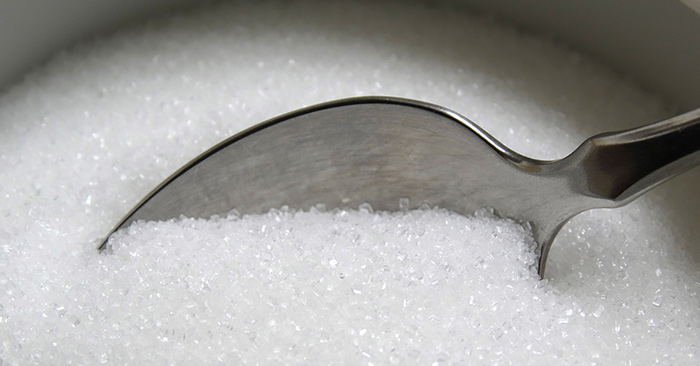Expo West: Industry Reacts To Erythritol Study

Has a new report touched off industry panic over erythritol? Judging by Expo West, perhaps not quite yet.
The week before this year’s Natural Products Expo West, scientific journal Nature Medicine released a study claiming that erythritol, a sugar alcohol used to sweeten a range of food and beverage products sold in stores, was linked to elevated rates of heart attack and stroke. Researchers identified the connection during the initial part of the study, which spent seven years studying blood samples from 1,157 individuals with the goal of identifying compounds associated with increased cardiovascular risks. They later identified erythritol as one of those compounds.
Though the findings primarily focus on observations from the study’s secondary, eight-person test group, which has been criticized for its narrowness, brands using the sweetener have been pushed to consider the implications of the findings – regardless of whether or not they are skeptical of the study itself – as it quickly gained attention from mass media outlets.
At Expo West, Icelandic jam maker Good Good and Colombian chocolate manufacturer Luker Chocolate both individually told NOSH that consumers are going to form opinions on erythritol based on the headline alone, and that they are approaching the situation by communicating to their customers that they are monitoring emerging research on the ingredient rather than jumping to reformulate.
“While the study showed an association between high erythritol levels and an increased risk of major adverse cardiovascular events, it is important to note that the study was observational and cannot prove causation,” Good Good said in an email statement to consumers. “In fact, other studies have shown that erythritol is generally safe for consumption and does not have significant adverse effects on cardiovascular health.”
Good Good makes a range of sugar-free spreads including jams and nut butters, the majority of which are sweetened with a combination of erythritol and stevia extract. The brand also makes a line of stevia-based sweeteners and extracts including its “Sweet Like Sugar” product – a blend of erythritol and steviol glycosides.
According to Jordian Farahani, marketing manager at Good Good, the company feels that clinically-valid research with a more expansive sample-size is necessary in order to determine erythritol’s impact on cardiovascular health. The brand also noted that erythritol is Generally Recognized As Safe (GRAS) by the US Food and Drug Administration (FDA), and has been deemed safe by regulatory bodies in Canada and Europe. Additionally, the statement said that stevia, the secondary alt-sugar used in Good Good products, has been found to have a positive impact on cardiovascular health.
Within beverages, erythritol can be found across a range of categories from CSDs to flavored waters. Reaction to the study amongst brand leaders and entrepreneurs that work with the sweetener was politely dismissive, according to conversations we had at the show.
“As a company, we are committed to using the best available science and research to ensure the safety and quality of our products,” the statement from Good Good concluded. “We understand your concerns, and we want to assure you that we are closely monitoring the situation and will continue to assess any new research on erythritol and other sweeteners.”
Luker Chocolate is taking a similar approach and believes that, since the information around erythritol is quite recent, it will focus on fully understanding the research and information before determining what further action is necessary. The company has not seen a change in interest for its sugar-free chocolate, which use combinations of erythritol and stevia mix as well as maltitol and allulose.
Alternately, New York-based brand Scott’s Protein Balls plans to act in response to the new information. Founder and CEO Lori Levine explained that the brand uses erythritol in its proprietary protein powder mix, a core component of its product range, but can fairly easily swap out the sweetener for a different ingredient. Levine said the decision is less based on the study itself and more about taking advantage of its ability to reformulate to ‘play it safe’ and remove the ingredient altogether.


















